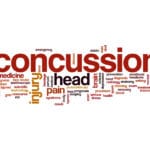Get ready for a wild ride as we dive into the mysterious world of concussions! We’ll shatter common myths and uncover the latest mind-blowing facts. From the moment the head takes a hit to the long recovery journey, we’ll explore the inside scoop on this tricky injury. We’ll even meet athletes who’ve faced multiple concussions and come out swinging. So, buckle up and let’s get the lowdown on concussions!
Interesting Facts About Concussions
Ever heard of a concussion? You’ve probably heard them called “getting your bell rung,” or having your “head scrambled.” They’re way more common than you might think, and there’s a lot of interesting stuff to learn about them. Ready to dive in?
They’re More Common Than You Think
Seriously, concussions are surprisingly common, especially among young people. Get this: some studies suggest that as many as 18% of kids and teenagers have already had at least one concussion. That’s like, almost one in five kids in your class!
You Don’t Need a Direct Hit to the Head
Think you need to get knocked out cold for it to be a concussion? Not necessarily! While a direct hit to the head is a common culprit, it’s not the only way a concussion can happen. Sometimes, all it takes is a sudden, forceful movement of the head – like whiplash from a car accident, or even a really hard fall. This can cause the brain to bounce around inside the skull, leading to a concussion.
Girls Are More Susceptible
Here’s an interesting fact: girls are actually more likely to get concussions than boys. There’s still ongoing research into exactly why this is, but some experts believe it might have something to do with differences in neck strength and head-to-body ratio. This difference is especially noticeable in sports like soccer, where girls tend to report concussions at higher rates than boys.
A Major Issue in Contact Sports
This one probably won’t come as a surprise: concussions are a significant concern in contact sports like football, hockey, and rugby. These sports involve a lot of fast-paced action and potential for collisions, which unfortunately translates to a higher risk of concussions. In fact, statistics suggest that around 20% of high school athletes in these types of sports will experience a concussion at some point during their athletic careers.
What are two facts about recovering from a concussion?
So we’ve talked about some of the things that can happen after a concussion, but what about bouncing back?
It’s good to remember that most folks who’ve had a mild concussion do get back to their old selves – eventually. The thing is, “eventually” can look different for everyone. Younger people often seem to shake it off quicker, while those who’ve had a few too many knocks to the noggin might need a bit more time. And if you’ve had concussions before, it might take a little longer to feel like yourself again.
Now, here’s the thing – concussions can be sneaky. You’d think it’s all headaches and dizziness, right? But sometimes, they can throw you a curveball. We’re talking about things like feeling down in the dumps (that’s depression, in case you were wondering) or even those awful migraine headaches.
What are 5 Causes of Concussions?
So, we’ve been talking about concussions, those jarring brain injuries that can really mess with your day. But what exactly causes them? Well, it’s all about force and how it impacts your head, sometimes even your body. Let’s break it down into five common culprits:
- Getting Hit Directly on the Head: This one might seem obvious, but a strong blow to your head from a fall, a collision during sports, or even a car accident can send shockwaves through your brain. Think of it like an earthquake inside your skull – definitely not a good feeling, and it often leads to a concussion.
- That Sudden Jerk of Whiplash: Ever been in a fender bender or experienced a sudden stop on a rollercoaster? That jarring back and forth motion of your head is called whiplash. It’s not just your neck that feels it; that rapid movement can actually strain your brain too, potentially resulting in a concussion.
- The Force of Explosions (Blast Injuries): This one is serious stuff. Powerful explosions, like those from bombs, can create intense pressure waves that injure the brain, even if your head isn’t directly hit. It’s a reminder that concussions aren’t always from direct impact but can result from the sheer force traveling through the air.
- Shaken Baby Syndrome: A Very Serious Matter: Sadly, sometimes concussions are inflicted rather than accidental. Violently shaking a baby, even for a short time, can cause devastating brain damage, including concussions. This is why it’s crucial to handle infants with the utmost care and never shake them in anger or frustration.
- Those Everyday Falls Can Be Tricky: We’ve all taken a tumble, but as we age, falls can become increasingly dangerous. Tripping, slipping, or losing your balance, especially for older adults, can easily lead to a head injury and a possible concussion.
Think of it This Way:
It’s like your brain is a delicate fruit floating in liquid inside your skull. Any sudden jolt or impact can cause it to bump around, leading to a concussion. Knowing what situations might lead to these injuries is the first step in protecting yourself and your loved ones. Stay safe out there!
What can 4 concussions do to you?
So, we’ve been talking about concussions and how even one can have a real impact. Now, imagine going through that four times. Unfortunately, the effects of multiple concussions tend to stack up, and the risks to your brain health increase significantly.
One of the scariest things about multiple concussions is the potential for long-term problems. For example, your memory and ability to focus might take a hit, making it hard to concentrate at work or school. It’s not just about forgetting where you put your keys; we’re talking real difficulties with thinking and learning.
And it’s not just the cognitive stuff. Experiencing multiple concussions can really mess with your mental well-being, too. It’s not uncommon to feel more anxious or depressed after a concussion, and these feelings can linger, especially if you’ve had several. Sleep can become a real battle, with insomnia and restless nights becoming the new normal.
Then there’s Chronic Traumatic Encephalopathy (CTE), a scary-sounding but very real brain disease linked to repeated head injuries. Four or more concussions significantly raise your risk of developing this condition, which causes a progressive decline in brain function. This can mean serious memory loss, personality changes, and even dementia down the road.
On top of all that, you’ve got the persistent physical symptoms that often follow multiple concussions. Think constant headaches that just won’t quit, dizziness that makes you feel off-balance, and difficulty with coordination. It’s like your body is trying to tell you something’s not right.
Here’s the bottom line: While our understanding of concussions is always evolving, one thing’s for sure – brushing them off as “just a bump on the head” is never the answer. Each concussion, no matter how mild it seems, has the potential to impact your brain. When you’ve experienced multiple concussions, the importance of proper management and seeking medical attention can’t be stressed enough. It’s about protecting your brain and your future.
Who has had the most concussions?
It’s tough to say exactly who’s had the most concussions. We hear about famous athletes in contact sports like football, hockey, and soccer who’ve had multiple head injuries. Guys like Dave Duerson, Junior Seau, and Aaron Hernandez in football, sadly, come to mind. They had multiple concussions that experts believe played a role in their health struggles later in life.
Even superstars like Sidney Crosby in hockey have dealt with multiple concussions, one even sidelined him for an entire season! Women’s soccer has seen its share too, with players like Brandi Chastain, Abby Wambach, and Hope Solo all experiencing concussions during their careers.
But here’s the thing: pinning down an exact number of concussions for any athlete, famous or not, is really hard. Why? Because lots of concussions, maybe even most, go unreported. Someone might get their bell rung and shake it off, not realizing how serious it could be. Plus, the symptoms of a concussion can be sneaky, sometimes showing up days or even weeks later.
What we do know is that repeated concussions are a big deal. They’ve been linked to some serious long-term problems like trouble thinking clearly, memory problems, and even mental health challenges. This is why it’s so important for athletes at all levels to understand the risks of concussions and do everything they can to prevent them. This means wearing the right protective gear, playing by the rules, and speaking up if you think you might have a concussion.
Scientists are still figuring out all the details about concussions, how to diagnose them better, and how to help people recover fully. This is a field where research is constantly evolving, and what we know today might be outdated tomorrow. That’s why it’s important to stay informed and keep learning about this important topic.
Remember, even though we can’t put an exact number on who’s had the most concussions, the real takeaway is that even one concussion is one too many.
How Long Did the Longest Concussion Last?
It’s impossible to say definitively how long the absolute longest concussion has lasted. Concussion recovery is incredibly individual, and there are many factors influencing it. While most people recover from a concussion within a few weeks, some individuals experience lingering symptoms for months or, in rarer cases, even years.
Factors Influencing Concussion Duration:
- Severity: A mild concussion might resolve within days, while a severe concussion can have much longer-lasting effects.
- Individual Health: Age, overall health, and previous concussion history can all influence recovery time.
- Treatment and Adherence: Following medical advice, resting adequately, and avoiding activities that worsen symptoms are crucial for a faster recovery.
The important thing to remember is that if you’re experiencing concussion symptoms, it’s crucial to seek medical attention. A healthcare professional can assess your specific situation and provide guidance for proper management and recovery.
For more information on concussions and recovery, you can visit the Centers for Disease Control and Prevention (CDC) website: https://www.cdc.gov/headsup/basics/concussion_whatis.html
Do most concussions fully heal?
Most concussions, especially when properly managed, do fully heal. This is particularly true for mild concussions in young, healthy individuals. The brain has an incredible capacity for healing, and, in many cases, it can bounce back from a mild injury with no lasting effects. However, it’s essential to understand that concussion recovery is not always straightforward and several factors can influence the outcome.
Factors Impacting Full Concussion Recovery:
- Concussion Severity: The severity of the initial brain injury plays a significant role in recovery.
- Age: Younger individuals tend to recover faster than older adults.
- Previous Concussions: A history of multiple concussions can make it more challenging to fully recover from subsequent ones.
- Individual Health Factors: Underlying health conditions and genetics can influence how well someone recovers.
- Treatment and Management: Following medical advice, getting enough rest, and gradually returning to activities are crucial for optimal recovery.
Ongoing Research:
Researchers are constantly working to better understand concussions and improve treatment protocols. They are exploring why some individuals experience prolonged symptoms and what factors might put certain people at higher risk for long-term complications. This ongoing research is essential for developing more effective diagnostic tools, treatment plans, and prevention strategies.
While most concussions do fully heal, it’s crucial to be aware of potential long-term risks, particularly with repeated head injuries. If you’re concerned about the potential effects of a concussion, talking to your doctor is essential. They can provide personalized guidance and address any questions or concerns you may have.
What are two things you must do after a concussion?
If you suspect you’ve hit your head and might have a concussion, there are two crucial steps to take:
1. Seek Immediate Medical Attention: Don’t try to “tough it out.” Even if you think the injury is minor, it’s crucial to see a doctor or go to the emergency room as soon as possible. They can assess your condition, determine the severity of the concussion, and provide guidance for proper recovery.
2. Prioritize Rest: Rest is essential for allowing your brain to heal. This means both physical rest and mental rest. Avoid activities that require a lot of concentration, limit screen time, and steer clear of bright lights and loud noises – anything that could overstimulate your brain.
Remember, even a seemingly mild concussion can have lasting effects if not managed properly. Seeking prompt medical attention and prioritizing rest are crucial first steps in the recovery process.
What are the after-effects of a concussion?
Concussions can manifest in a wide array of after-effects, with both short-term and long-term implications. The severity and duration of these effects vary considerably depending on factors like the force of the impact, the individual’s age, and their medical history.
Short-Term After-Effects (Typically resolve within days or weeks):
- Headaches: Persistent, often throbbing headaches are common after a concussion.
- Dizziness: Feeling lightheaded, unsteady, or experiencing vertigo (a spinning sensation) can occur.
- Fatigue: Intense tiredness and low energy levels are common, even after resting.
- Difficulty Concentrating: Problems focusing, paying attention, and feeling mentally foggy.
- Memory Problems: Difficulty remembering recent events, conversations, or appointments.
- Irritability: Feeling more easily frustrated, agitated, or short-tempered.
- Sensitivity to Light and Noise: Bright lights and loud sounds may seem overwhelming and uncomfortable.
- Disrupted Sleep: Trouble falling asleep, staying asleep, or experiencing unusual dreams.
Long-Term After-Effects (Can persist for months, years, or even become permanent in some cases):
- Post-Concussion Syndrome: This involves a cluster of persistent symptoms, such as headaches, dizziness, fatigue, and cognitive difficulties, that last for an extended period.
- Chronic Headaches: Migraines or other types of recurring headaches can become a chronic issue.
- Cognitive Impairment: Long-term problems with memory, attention, processing speed, and executive function.
- Mental Health Challenges: Increased risk of anxiety, depression, mood swings, and irritability.
- Chronic Traumatic Encephalopathy (CTE): This degenerative brain disease is linked to repeated head impacts and can lead to severe cognitive decline, personality changes, and dementia.
It’s important to remember that not everyone experiences all of these after-effects, and the severity can vary significantly. If you have any concerns about concussion symptoms, it’s crucial to consult with a healthcare professional for proper diagnosis and treatment.
What are the 4 steps of recovering from a concussion?
Recovering from a concussion is a gradual process that requires patience and careful management. While every brain injury is unique, following these four general steps can significantly aid in recovery:
1. Rest and Recover:
Think of this as the “time-out” phase. Your brain needs time to heal, so prioritize rest. This means both physical rest (avoiding strenuous activities) and mental rest (limiting screen time, reading, and intense concentration).
2. Identify and Manage Symptoms:
Pay close attention to your body and any lingering symptoms. Keep a symptom journal to track your progress and identify any triggers that exacerbate your discomfort. Common triggers include bright lights, loud noises, and activities that demand a lot of focus.
3. Follow Your Doctor’s Guidance:
Your doctor plays a vital role in your concussion recovery. They will provide personalized advice, potentially including medications to manage symptoms, recommendations for rest and activity levels, and referrals for specialized therapies.
4. Gradual Return to Activity:
Once your symptoms start to subside, you can gradually reintroduce activities, starting with light activities and slowly increasing intensity. Your doctor will help determine the appropriate pace for your recovery and advise when it’s safe to resume more demanding activities.
Rehabilitation:
In some cases, especially after moderate to severe concussions, your doctor might recommend specific rehabilitation therapies:
- Cognitive Rehabilitation: Involves exercises and strategies to improve memory, attention, and problem-solving skills.
- Physical Rehabilitation: Focuses on addressing physical symptoms like dizziness, balance issues, and headaches through vestibular therapy and exercises.
Remember, concussion recovery is not a one-size-fits-all process. It’s crucial to listen to your body, follow your doctor’s advice, and be patient with yourself as you heal.
What factors affect concussion recovery?
While most people recover from concussions relatively quickly, several factors can influence the duration and complexity of the recovery process. Understanding these factors can help individuals make informed decisions about their health and seek appropriate medical care.
Factors Influencing Concussion Recovery:
- Severity of Concussion: This is a primary determinant of recovery time. Mild concussions generally resolve quicker than moderate or severe concussions.
- Age: Research suggests that younger individuals typically recover faster than older adults.
- Concussion History: People who have sustained previous concussions, especially multiple concussions, may experience prolonged recovery periods and an increased risk of long-term complications.
- Overall Health Status: Preexisting health conditions, such as migraines, anxiety, or depression, can influence concussion recovery and potentially exacerbate symptoms.
- Access to Medical Care: Prompt diagnosis, appropriate treatment plans, and adherence to medical advice contribute to optimal recovery outcomes.
- Lifestyle Factors: Engaging in healthy habits, such as getting enough sleep, eating a balanced diet, and managing stress, can support the healing process.
The Importance of Individualized Care:
Because concussion recovery is so multifaceted, there is no one-size-fits-all approach. Seeking medical attention after a suspected concussion is crucial for receiving personalized guidance and a tailored recovery plan. Healthcare professionals can assess your individual risk factors, monitor your progress, and recommend appropriate interventions to optimize your healing journey.
If you’re concerned about a potential concussion or are experiencing lingering symptoms, don’t hesitate to contact your doctor. They can provide the support and guidance you need to navigate the recovery process and regain your well-being.
For more information on concussions and their impact, you can explore related articles like the scientific evidence surrounding the apparition of Our Lady of Guadalupe or gain insights into the crucial role of healthcare professionals like anesthesiologists.
- China II Review: Delicious Food & Speedy Service - April 17, 2025
- Understand Virginia’s Flag: History & Debate - April 17, 2025
- Explore Long Island’s Map: Unique Regions & Insights - April 17, 2025

















2 thoughts on “Beyond the Bump: Uncovering Surprising Facts About Concussions”
Comments are closed.